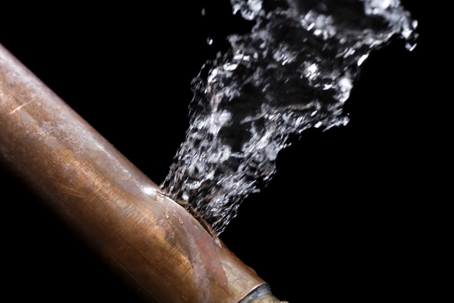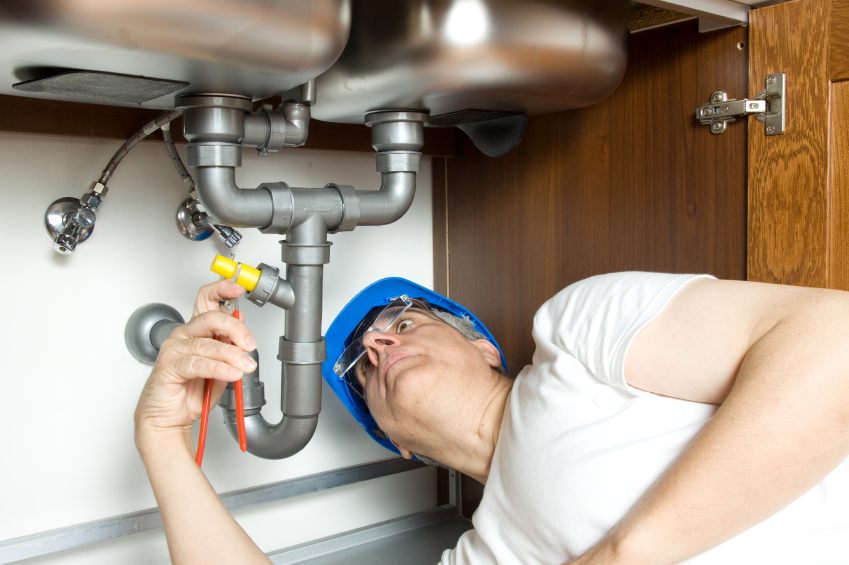Important Emergency Plumbing Fixes to Apply Until Help Arrives
Important Emergency Plumbing Fixes to Apply Until Help Arrives
Blog Article
Listed here underneath you'll find more good additional info on the subject of What to Do During a Plumbing Emergency.

Pipes emergency situations can strike any time, creating stress and anxiety and possible damages to your home. Whether it's a ruptured pipe, a blocked drain, or a dripping faucet, understanding how to handle the situation until a specialist plumbing technician arrives can conserve you from more problems. This article offers vital emergency plumbing suggestions to assist you mitigate damage and regain control throughout a pipes situation.
Switch off the Water
The very first step in any kind of plumbing emergency is to shut down the water. For local concerns, such as a dripping faucet or toilet, switch off the shutoff near the component. In the case of a major leak or ruptured pipeline, find your home's major water shut-off shutoff and turn it off promptly. Understanding the location of these valves beforehand can save important time during an emergency.
Address Small Leaks with Temporary Fixes
Small leaks can quickly become significant problems if left unchecked. Make use of these short-lived solutions till specialist aid shows up:
While these fixes aren't irreversible, they can aid lessen water loss and damage.
Unclog Drains Pipes Securely
A stopped up drainpipe can be a discouraging and untidy problem. Right here's exactly how to tackle it:
If these techniques don't function, prevent utilizing excessive pressure, as it might intensify the blockage.
Take Care Of Overflowing Toilets
An overflowing toilet can create instant mayhem. Here's what you need to do:
Shut Off Your Water Heater
In particular emergency situations, such as a burst pipe, it's important to turn off your water heater. This prevents getting too hot or damage to the unit when water quits streaming. Turn off the power supply to the hot water heater (electric or gas) and allow it cool off to avoid possible hazards.
Momentarily Quit a Ruptured Pipe
A ruptured pipeline can lead to substantial water damages in minutes. To alleviate the issue:
Call an expert plumbing professional right away to address the issue completely.
Deal With Frozen Piping Carefully
In colder climates, icy pipes are a typical emergency situation. If you suspect a frozen pipe:
Avoid Additional Damages
Taking fast action to lessen damage can conserve you money and time over time. Right here's how:
. Have an Emergency Plumbing Package
Prepare a basic plumbing emergency situation package to handle minor concerns efficiently. Your kit needs to include:
Having these devices on hand can make a significant difference in your capability to manage emergency situations.
Know When to Call a Specialist.
While quick fixes can help temporarily, specific plumbing problems call for prompt specialist attention. Call a plumber if:.
Without delay contacting a professional guarantees the problem is resolved appropriately and stops further problems.
Final thought.
Plumbing emergencies can be overwhelming, but with the right knowledge and devices, you can take care of the scenario properly up until assistance shows up. By turning off the water supply, addressing small leakages, and making use of momentary repairs, you can reduce damage and maintain your home safe. Keep in mind, these suggestions are short-term solutions; constantly get in touch with an accredited plumbing technician to deal with the root cause of the trouble. Preparation and quick thinking are your ideal allies in any type of plumbing emergency situation.
8 Helpful Tips for Managing Plumbing Emergencies at Home
If your plumbing system hasn’t failed once, wait for it because almost everyone has a story to tell. Sometimes, it could be simple emergencies such as a leaking pipe, a blocked cistern, or even a big burst pipe. In situations like this, you need to have some handy tips to save you some money and from possible damages.
Take care of minor issues early.
Sometimes, you could have avoided an emergency by taking proactive measures while it was still early. Some major plumbing emergencies can be a result of an ignored minor issue. We recommend that you have items like plumbing tapes and other related items. A plumbing tape can allow you to manage minor leaks before the plumber arrives.
Cut off the water supply.
This tip is essential in almost any type of leakage problem. For problems like minor leakages in the toilet or kitchen, turn off the supply that takes water to the affected pipes. If the leakage is a major pipe, you must shut off the supply valve to the entire building. This will help you avoid flooding your home and neighbors if you share a flat.
Know your plumbing system
Folks typically move into a new apartment without understanding the water supply around the building. This can prove disastrous if a water emergency arises and the plumber is far away. The previous tip will prove useless if you don’t practice this one. More importantly, know where your water shut-off valve is located – you’ll need that knowledge to prevent potential home floods.
Have some common handy tools
There are lots of plumbing emergencies that you can handle without hiring a plumber. That’s why you must keep some tools available always. Some tools that you can use to fix simple plumbing emergencies easily include plumbing tapes, screwdrivers, thread seal tapes, plungers, pliers, tape measures, and rubber gloves.
Insulate your pipes from cold
You’ll save yourself from many plumbing expenses if you protect your water pipes from the cold. This is because of the harmful effects that cold weather can have on your pipes. During winter, your pipes can burst from being overly expected to freezing temperatures. So, make sure insulators are there to keep the pipes working correctly.
Avoid practices that will clog your toilet.
Many people indulge in practices that can damage the plumbing system of the entire building. One of these is when they use their toilet to dispose-off garbage. They flush all kinds of things, such as paper towels, bandages, hairs, female sanitary products, etc., down the toilet. This will block your toilet in the long run, incurring unnecessary expenditures. Dump such waste in the trash instead.
Check your dials regularly.
Sometimes, there could be leakages in your home without noticing them in time. So, constantly monitor your water meter dial. If the dial is reading when there is nobody using water, this is an indicator that there is leaking. Check for leaks immediately. Call a plumber as soon as possible if you can’t find any.
https://www.constructionplacements.com/8-helpful-tips-for-managing-plumbing-emergencies-at-home/

We had been shown that article on What to Do During a Plumbing Emergency through a friend on our other web property. Do you know somebody else who is inquisitive about the topic? Take a moment to promote it. I value reading our article about What to Do During a Plumbing Emergency.
Request Your Service Report this page